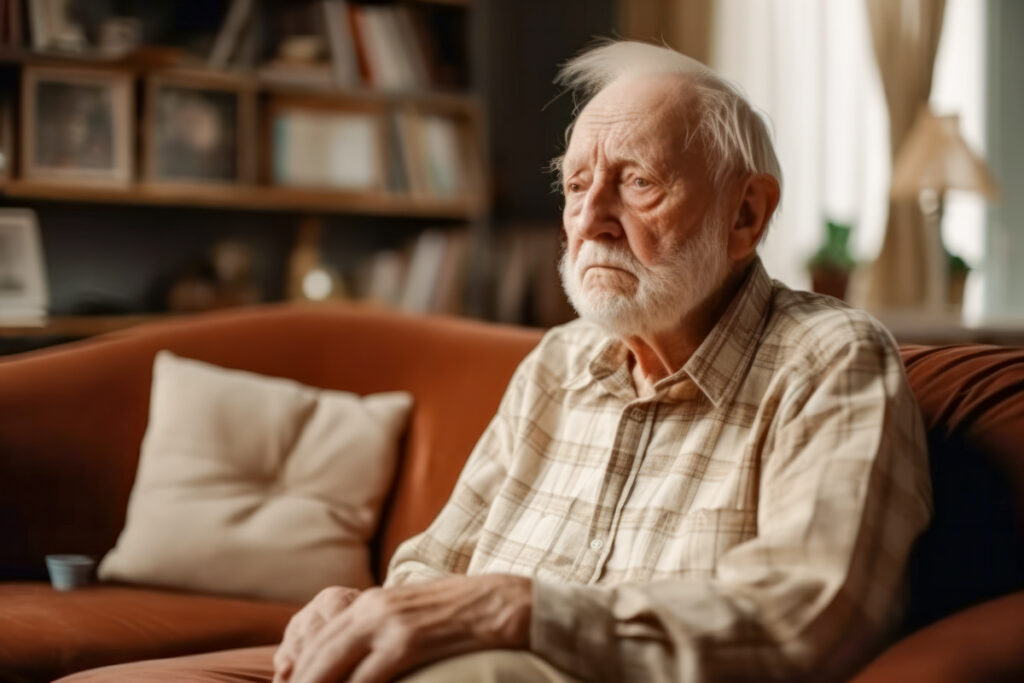 Social connection is as vital to human health as a nutritious diet and regular exercise. For elderly adults who find themselves staying home due to limited mobility or health concerns, feelings of isolation and loneliness can become significant burdens. This guide explores the reasons why staying connected is crucial for seniors, and provides a comprehensive look at resources available to combat social isolation and find help, even for those who feel like shut-ins.
Social connection is as vital to human health as a nutritious diet and regular exercise. For elderly adults who find themselves staying home due to limited mobility or health concerns, feelings of isolation and loneliness can become significant burdens. This guide explores the reasons why staying connected is crucial for seniors, and provides a comprehensive look at resources available to combat social isolation and find help, even for those who feel like shut-ins.
Why Connection Matters for Senior Isolation
Loneliness can have a profound impact on the physical and mental well-being of older adults. Studies have shown that social isolation can:
- Increase the risk of chronic health conditions: Loneliness can elevate stress hormones, weaken the immune system, and contribute to heart disease, high blood pressure, and even dementia.
- Lead to depression and anxiety: Social isolation can exacerbate feelings of sadness, hopelessness, and anxiety.
- Decrease cognitive function: Interaction with others stimulates the brain and helps to keep it sharp.
- Reduce quality of life: Feeling alone can rob seniors of the joy and purpose that comes from social connection.
Combating Senior Isolation: A Multifaceted Approach
 The good news is that there are a variety of ways for seniors to stay connected, even if they have limited mobility or live alone. Here’s a breakdown of resources and strategies:
The good news is that there are a variety of ways for seniors to stay connected, even if they have limited mobility or live alone. Here’s a breakdown of resources and strategies:
-
In-Home Support Services:
Home Care
Trained professionals can assist with daily living activities like bathing, dressing, and medication management. They can also provide companionship and conversation.Meals on Wheels
This service delivers nutritious meals directly to seniors’ homes, often accompanied by a friendly check-in.
- Friendly Visitor Programs
Volunteers visit seniors for regular social interaction, offering conversation, games, and a listening ear. - Telehealth: Video conferencing with healthcare providers and therapists becomes an option, allowing medical care and mental health support from the comfort of home.
-
Technology for Connection:

- Smartphones and Tablets
These devices allow for video calls with family and friends, online chats with senior communities, and access to social media platforms for connection. - Social Media Groups
Many online groups cater specifically to seniors, offering opportunities to share experiences, hobbies, and conversations. - Online Games and Activities
Puzzles, brain teasers, and online games can stimulate the mind and provide a sense of accomplishment, while offering opportunities to connect with others online who enjoy similar activities.
-
 Rekindling Local Ties:
Rekindling Local Ties:
- Senior Centers
These community hubs offer a variety of activities, social events, fitness classes, and educational programs, allowing seniors to connect with others who share similar interests. - Religious Organizations
Many churches, synagogues, and mosques have active senior groups that provide social interaction, spiritual support, and a sense of community. - Volunteer Opportunities
Volunteering allows seniors to feel a sense of purpose and accomplishment, while connecting with others who share their values.
-
Reaching Out for Help:
 Area Agency on Aging (AAA)
Area Agency on Aging (AAA)
|These government-funded agencies provide a wealth of resources for seniors, including information on in-home care, transportation assistance, and social programs. You can find your local AAA by calling the Eldercare Locator at 1-800-677-1116.- National Institute on Aging (NIA)
This government agency provides a wealth of information on senior health, including resources on combating loneliness and social isolation https://www.nia.nih.gov/health/loneliness-and-social-isolation.
Finding the Right Fit
The best approach will vary depending on individual needs and preferences. Here are some tips for helping seniors find the right resources:
- Start a conversation: Talk openly with your loved one about their feelings of isolation and explore their interests and concerns.
- Involve them in the process: Let them take ownership in choosing activities or programs they’d enjoy.
- Start small: Begin with manageable goals and gradually expand their social connections.
- Be patient: It takes time to adjust to new routines and build social connections.
- Offer support: Help them get started with technology, transportation, or any challenges they may face.
 Staying connected is essential for a fulfilling and healthy life, especially for older adults. By taking advantage of the many resources available and fostering a sense of connection, we can help seniors combat loneliness and live their best lives, even if they face limitations that keep them at home. Remember, you are not alone in this journey. There’s a world of support waiting to be discovered.
Staying connected is essential for a fulfilling and healthy life, especially for older adults. By taking advantage of the many resources available and fostering a sense of connection, we can help seniors combat loneliness and live their best lives, even if they face limitations that keep them at home. Remember, you are not alone in this journey. There’s a world of support waiting to be discovered.
Additional Resources to Address Senior Isolation:
- National Council on Aging https://www.ncoa.org/index.htm
- Family Caregiver Alliance https://www.caregiver.org/
About Walnut Creek Elder Law in Walnut Creek, California

Michael J. Young is an experienced elder law, estate planning and asset protection planning attorney in Walnut Creek, CA. Mr. Young advises his clients regarding their estate planning needs with an emphasis on asset protection, Medi-Cal qualification, and preservation of assets for various levels of their care as they get older. Mr. Young’s journey into elder law began when his mother suffered from an acute injury that required her to be in a skilled nursing facility. He is co-author of the book, Don’t Go Broke in A Nursing Home and is the author of the “Alzheimer’s Legal Survival Guide.” Mr. Young presents monthly workshops in Walnut Creek regarding estate planning, asset protection, and Medi-Cal planning. He has helped many clients over the years successfully qualify for Medi-Cal and has protected their assets from state recovery. Call today to schedule a consultation (925) 256-0298.

